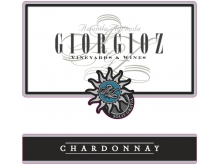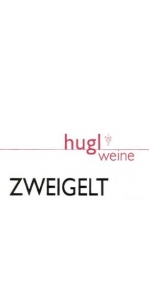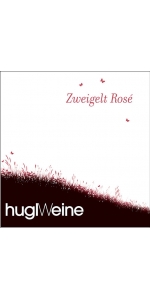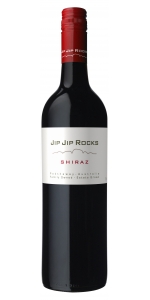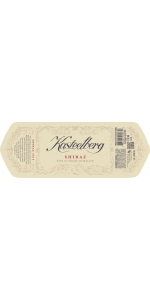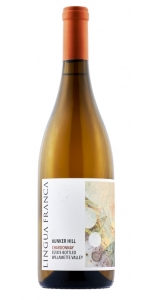Giorgio Z Chardonnay 2022
6 bottles with free shipping for: $150.00
12 bottles with free shipping for: $228.00
| BUY MORE! SAVE MORE! | ||||||||||||||||||||
|
| Country: | Italy |
| Region: | Friuli |
| Winery: | Zaglia Giorgio |
| Grape Type: | Chardonnay |
| Organic: | Yes |
| Vintage: | 2022 |
| Bottle Size: | 750 ml |
D.O.C.FRIULI
Pale straw yellow color.
The aromas are fine and elegant with apple and acacia flowers scent and a note of bread crust.
The wine is hamonious, smooth and soft.
Soil type is Clay.
Average age of the vines is 15 years old.
100% hand harvested.
Fermentation at 15°C during 15 days.
Aged in stainless steel tank on the fine lees for 6 months.
Slight filtration before bottling
Giorgio Z Pinot Grigio is made from Pinot Grigio.
D.O.C.FRIULI
Straw yellow color with golden tint.
Typical bouquet reminiscent of acacia blossom.
The wine has a very refined taste, it is dry and full bodied with pleasing bitterness.
Soil type is Clay.
Average age of the vines is 15 years old.
100% hand harvested.
Fermentation at 15°C during 15 days.
Aged in stainless steel tank on the fine lees for 6 months.
Slight filtration before bottling
Hugl Zweigelt Classic is made from 100 percent Zweiglt.
Despite its relative youth, Zweigelt is actually an Austrian classic. This variety was created in 1922, when Dr. Fritz Zweigelt crossed two grapes - St Laurent and Blaufränkisch. Originally, it was intended for the new variety to be called Rotburger, referring to the place where it was born, Klosterneuburg. But this name never took hold, and instead, Zweigelt was named after the man who was the key in its development.
Today, Zweigelt is the most widely planted red variety in Austria, growing in nearly 9% of this country's vineyards. It is a robust grape, highly resistant to dryness, frost and various diseases.
The wine boasts a concentrated color, fruity and spicy aromas, cherry flavors. Full-bodied, smooth and round, the wine is an ideal food companion.
Despite its relative youth, Zweigelt is actually an Austrian classic. This variety was created in 1922, when Dr. Fritz Zweigelt crossed two grapes - St Laurent and Blaufränkisch. Originally, it was intended for the new variety to be called Rotburger, referring to the place where it was born, Klosterneuburg. But this name never took hold, and instead, Zweigelt was named after the man who was the key in its development.
Today, Zweigelt is the most widely planted red variety in Austria, growing in nearly 9% of this country's vineyards. It is a robust grape, highly resistant to dryness, frost and various diseases.
The wine boasts a pale rosé color, it has plenty of fruity aromas, with red cherry and wild strawberry flavors. It is medium-bodied, but it still have a nice long and pleasant finish with a light cinnamon type of spice to it.
Only the best grapes are harvested with a lot of experience and know-how and further processed. The grapes are fermented directly gently pressed and cooled. The fermentation takes place exclusively in stainless steel tanks.
Perfectly at home on any picnic, delicious with fried chicken, and tames the heat when paired with spicy dishes. There is also a slight watermelon note that makes it perfect for spring and summer. A great pairing with barbecued shrimp.
Jip Jip Rocks Shiraz is made from 100 percent Shiraz.
Jip Jip Rocks wine is synonymous with premium wines from South Australia’s Padthaway wine region. The vineyard is planted in some of the world’s oldest mineral rich soils and in the most temperate of maritime climates. The Jip Jip Rocks vineyard consistently produces excellent fruit quality from low yielding vines.
Only the best parcels of fruit are carefully selected throughout the vineyard and utilized in the Jip Jip Rocks label. Great attention to detail with the integration of fruit flavors and fine oak barrels helps produce classic handcrafted wine styles.
Lifted spice and ripe mulberry/blackberry aromas are complimented with chocolate, cedar and cinnamon on the nose. Well-integrated oak tannin provides flavors of clove and supple texture, which supports the rich plum, blackberry and mocha. The overall structure is supple and generous with fine-grained tannin and a lingering finish.
Pairs well with venison, ribeye steak, lamb.
The Kasteelberg range of wines, celebrates the discovery of Riebeek and the Kasteelberg mountains in 1661. Kasteelberg stands sentinel over the fertile valley below. From the slopes of the mountains, hand-selected grapes are expertly crafted with care to produce rare and expressive wines. The Kasteelberg range truly is the pinnacle of our Winemaker's art.
Often referred to as Shiraz Country, the Riebeek Valley is renowned for exceptional Shiraz wines.
The Kasteelberg Shiraz is a lively rich wine, full bodied with a subdued smokiness on the nose and a pallet of ripe fruit and interesting spice.
Well-balanced and smooth, the aftertaste lingers with the exciting flavors of Christmas pudding.
Serve at room temperature. The perfect companion to barbequed lamb, fillet medallions and game. Lovely with Springbok stuffed with bacon, garlic and rosemary and a great match to a cheese and preserve platter.
Review:
"I'd expect to prefer the 2017 Shiraz to the 2018 bottling, but it's actually the reverse. Maybe Alecia Boshoff has just got more experience with the fruit from this Kasteelberg site. Sweet and spicy, with enticing incense and violet aromas, fine tannins, succulent red berry fruit and deftly integrated one-third new oak. 2021-26"
- Tim Atkin (South Africa 2020 Report), 92 pts
Lingua Franca Bunker Hill is made from 100 percent Chardonnay.
Pale yellow-green color with a predominantly mineral aroma of flint, river stone, green apples, and green olives, later fresh herbs, lemon zest and yellow flowers emerge. On the palate it is precise and taught, with wet stone and saline notes, crisp green apples and thyme. The finish is persistent and firm, with a mouthwatering mineral quality. This is a vintage with finely chiseled features at Bunker Hill. Our Bunker Hill Estate Vineyard in the South Salem Hills and is the oldest source of fruit for any of our wines, having been planted in 1995 to CH76. It is among the earliest of the Dijon-clone plantings in Oregon, situated on the remnant of a pioneer farm.
Review:
Estate bottled, the 2022 Chardonnay Bunker Hill is the counterpart to the Chardonnay Estate. It pours a bright pale yellow with a tinge of green and has a lovely incense of delicate toast lifting from the glass, followed by notes of white flowers, fresh green pear, and pleasing reduction. This wine comes from a site where the grapes get thicker skins from the wind, leading to firmer structure, and on the palate, this wine is medium to full-bodied, with a pithy, chalky texture. Drink 2024-2034.
-Jeb Dunnuck 94 Points
- back
Renato Ratti Rocche dell'Annunziata Barolo is made from 100 percent Nebbiolo. Grapes handpicked in the month of October, de-stemmed and pressed. The alcoholic fermentation takes place in temperature-controlled stainless steel containers. Contact with the skins lasts approximately three to four weeks and includes fermentation and subsequent post-fermentation maceration with the traditional submerged cap system. The malolactic fermentation takes place in steel containers.
The Rocche dell'Annunziata vineyard is historically known as one of the most important in the Barolo zone. In his Barolo Chart, Renato Ratti had already underscored this by entering it in the 1st Category class. Situated at about 300 meters above sea level and with a south-east exposure, it extends over approximately 1 hectare. Rich with typical blue marl interspersed between veins of sand, the earth confers an extraordinary elegance and depth, combined with fine and persistent scents of roses and licorice. A prestigious subzone engenders a Barolo that holds within it suggestions of a radiant future. Warm, persistent, rich: in a word, sumptuous.
The label bears the coat of arms of the local noble family, with a black hawk against a gilt backdrop. The Latin inscription “Probasti me et cogniusti me” means “You tried me, you knew me.”
The Bottle: The Albeisa – named after the city of Alba – is the iconic bottle created by Renato Ratti in 1973, desired as a way of identifying the uniqueness of a territory and its wines.
A garnet red. Delicate and persistent fragrance with trace scents of licorice, rose and violet. Full-flavored, warm, with extremely elegant tannins offering long persistence. A great wine for important dishes, red meats roasted on a spit or grilled, game, dishes of gourmet white and red meats and ripe cheeses.
Review:
Lots of dried flowers here give a perfumed nature to it with berries and citrus. Hibiscus water, too. Full-bodied and chewy with lots of tannins and vivid acidity. Subtle plum and strawberry character. Muscular and formed..
-James Suckling 97 Points
Louis Roederer Cristal Vinotheque Edition Brut Millesime 1997 is made from Pinot noir (62%) and Chardonnay (38%).
Color
A bright and shimmering golden color, animated by an ultra-fine and swirling effervescence.
Nose
The bouquet is pure, precise and complex, mixing aromas of white flowers, almond, honey and nougat. Upon aeration, notes of red fruits and smoke are revealed, followed by warm and caramelized nuances reminiscent of macaroon, baked apples and tarte tatin.
Palate
Indulgent and velvety, the palate is rich while maintaining a great freshness thanks to a delicate effervescence. The flavors of candied Corsican citron stretch out on a finish marked by a chalky, powdery and iodized freshness, offering a dense texture and a serene length.
The property
Founded in 1776 in Reims, the Louis Roederer Champagne House has remained family-owned and independent. After more than 200 years of existence, the Louis Roederer House is still in the hands of the same family. Today led by Frédéric Rouzaud, who represents the seventh generation of the lineage, the Louis Roederer House embodies the excellence of Champagne wines around the world thanks to cuvées crafted like a work of art.
The vineyard
With nearly 241 hectares of vines, the Louis Roederer House draws its strength from its extraordinary vineyard, composed only of Grands and Premiers Crus in the Marne Valley, the Montagne de Reims and the Côte des Blancs. A true mosaic of terroirs, the Louis Roederer House's vineyard is divided into 410 plots that reflect all the diversity of the Champagne soils.
The wine
Cristal Vinothèque 1997 is made from three great vineyards known as "La Rivière", "La Montagne" and "La Côte".
The vintage
The spring of 1997, mild at first, was marked by an early bud break followed by severe frosts in April that damaged the vineyards of Verzenay and Verzy. After an early flowering in June, the rainy and cold weather until August favored the development of mildew and rot. Fortunately, the return of warm and sunny weather in August and September saved the vintage, with harvests taking place under radiant sunshine from September 15 to October 1.
Vinification and aging
Vinification is carried out in wood to the extent of 6%. Malolactic fermentation (16%). The cuvée was aged for 15 years on lees, 5 years on points and benefited from a rest of 4 years after disgorging. The dosage of this 1997 vintage champagne is 8 g/liter.
Review:
Intense nose of preserved lemons, salted yellow plums, walnuts, toast, salted caramel, roasted chestnuts and dried pineapple. Beautiful and complex, from 15 years, 5 years en pointe, before disgorgement in 2018. Delicious, salty toffee character. Soft, silky bubbles. Long and powerful. Thought-provoking. Unique. Will be launched in September 2022. Drink on release or hold.
-James Suckling 99 Points

